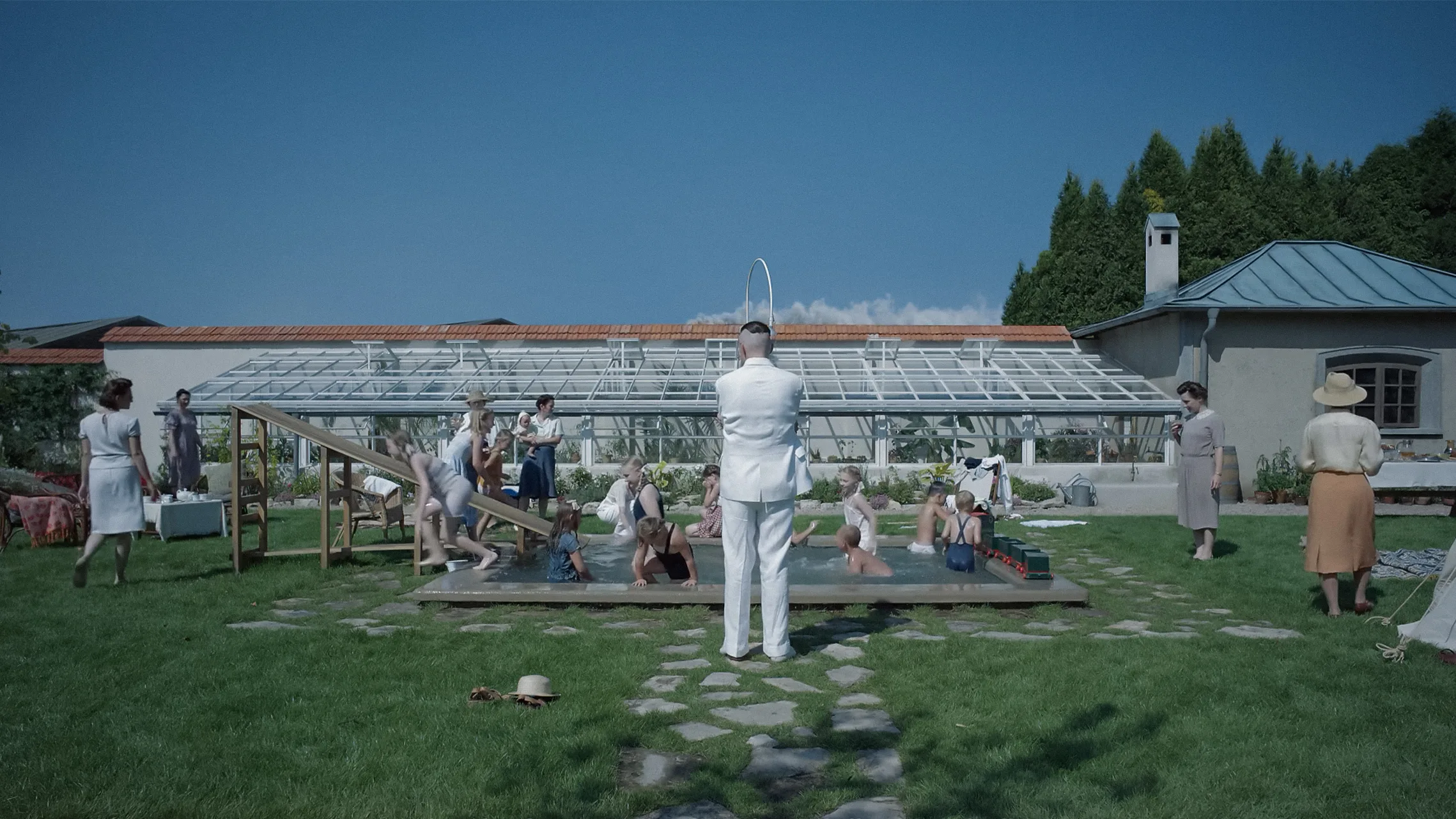I believe that many of us are acquainted with the concept of the ‘Banality of Evil’ based on the Eichmann trails. The Zone of Interest by Jonathan Glazer brings it to the screens of the audience to showcase what it really means.
The Zone of Interest deals with the lives of the Höss family, Höss, his wife Hedwig, and their five children. It’s a normal bureaucrat family, where the husband is really immersed in his work to carry out the work of the government of the day, the wife striving to be the perfect homemaker, with proper education and health for their children. All this happens in their seemingly perfect and normal house, only that their beautiful home shares a border wall with Nazi Germany’s largest concentration camp at Auschwitz, Höss being the commandant in charge of the camp.
The movies on Holocaust, as far as I have seen, mostly explore the factors of fear, survival, and resistance of being a Jew at times of distress while showcasing the power and hatred of SS officers and average Joes in Nazi Germany to add cinematic effect to the proceedings. But The Zone of Interest showcases how those Germans were really indifferent to one of the most horrendous crimes perpetrated by one human on the other, just like how we are indifferent now to the cause of the Palestinians, at the hands of the regime that was born as a new home to the Jews who survived from the Holocaust.
The two movies running in parallel, one by visuals and one by sound, prompt us to imagine what happens behind the wall when all we can see is the Höss family’s happy gatherings and mini picnics. The fact that the sound designers Tarn Willers and Johnnie Burn sourced the audio not from the Holocaust archives but from modern acts of oppression and civil wars left me speechless and scared.
When one of the greatest cinematic intercuts happens at the end of The Zone of Interest, we are left to ponder on our own banalities of evil. Are we humans as a collective, descending into darkness like Höss, witnessing history being repeated in various parts of the world, or will we overcome all these hardships and stand tall as a symbol of resilience like the Auschwitz-Birkenau State Museum?
Read more from zigarthanda on Instagram too!

